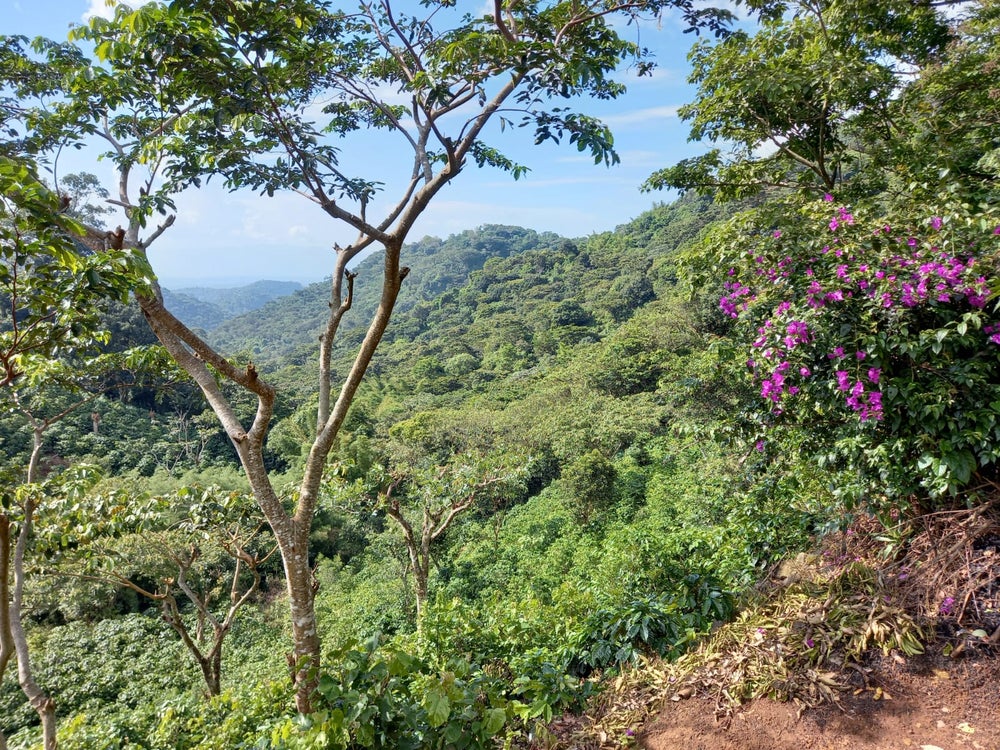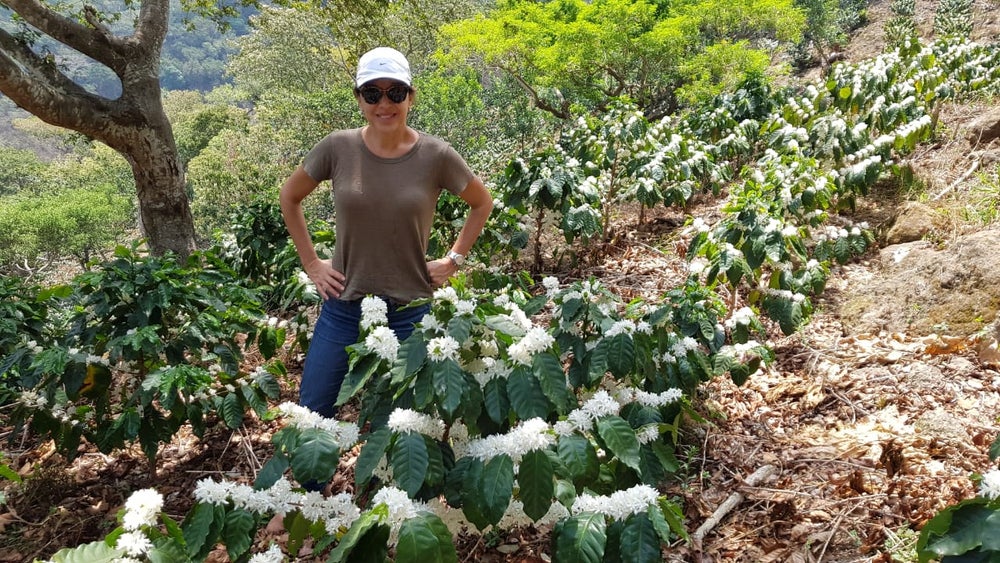About This Coffee
Thelma de Gutierrez’ life has revolved around coffee for as long as she can remember. Her childhood was spent on her family’s coffee farm and she has many found memories of running around the farm during harvest season while the smell of ripe cherry hung heavy in the air. It is due to all these happy memories, Thelma explains, that she decided to purchase her own coffee farm cementing her career as a third-generation coffee producer.
Thelma purchase Finca Madre Tierra in 2006. In 2014, she purchased Finca Lemus, an adjacent plot. She named the farm after the prevous owner, Carlos Lemus, who was a family friend. The farms sit on the top of a hill in the Ilamatepec mountain range near the town of Ataco. She chose the area intentionally, seeking to set down roots near Ataco, a town that has long been known for producing high quality coffee.
And she hasn’t stopped to rest on Ataco’s laurels. Thelma has many plans for future farm improvements to continue advancing quality on her farm. In the immediate future, Thelma plans to install an irrigation system that will make coffee cultivation more efficient and complement her existing efforts to strengthen her farm against potential hardships including droughts, diseases and pests and insufficient financing. Through thick and thin, Thelma says, “my love and passion for coffee is what keeps us going.”
Cultivation
The soil is rich and fertile thanks to volcanic deposits. A natural spring provides water throughout the year. The farm is verdant with native shade trees that also provide food and shelter to native and migrating animals.
Thelma is dedicated to preserving the environment by using sustainable farming practices. The farm uses a holistic ecological system to control infestations and disease. By nurturing fungi or insects that are harmless or beneficial to coffee trees and naturally prey on the diseases and pests that attack coffee trees, Thelma creates natural protection for her farm that improve rather than harms the environment.
Harvest & Post-Harvest
During the harvest, all cherry is selectively handpicked to ensure high-quality coffee. Ripe cherry is rested for 72 hours to allow light fermentation. Then, cherry is transported to Beneficio El Carmen, a dry mill in Concepcion de Ataco, Ahuachapan. At the mill, coffee is pulped on an Ecopulper and laid, with its mucilage, on raised beds and patios where it sundries for 20 to 24 days. Workers turn drying parchment frequently to promote even drying.
About Tabi
Tabi is a cross between Typica, Bourbon and Timor that was created by CENICAFE. It was released in 2002 and combines coffee leaf rust resistance with the good cup quality of Bourbon and Typica. Similar to those two parents, Tabi is tall with long branches. However, Tabi has slightly larger fruits and seeds and can be grown at high altitudes, and in high density, with up to 3,000 trees per hectare. The name comes from the word “tabi,” meaning “good” in Guambiano, the dialect of a native Colombian tribe.
Coffee in El Salvador
Don’t be fooled by El Salvador’s small size. It was once the 4th largest coffee producer worldwide and continues to produce high quality lots. The country is known for its great cupping varieties, such as Bourbon and Pacamara. In fact, two beloved, frequently high-scoring varieties—Pacas and Pacamara— originated in El Salvador.
Unlike other countries, where specialty coffee production has required a great deal of additional investment and training, El Salvador already has a broad and skilled specialty coffee workforce. Farming traditions run deep, and many Salvadorian farmers are extremely passionate about coffee production and continuously strive to improve their crop. El Salvador has optimal conditions for coffee processing. The prolonged dry season typically occurs during the harvest season, making it easier to sun dry coffee.
Though coffee output in the country has been declining for over two decades – exacerbated by the CLR crisis – the approach to coffee production has changed from volume- to quality-driven. A new generation of coffee producers has sprouted around the country with a new vision and approach to production. Many of this generation are experimenting with processing and varietals.

